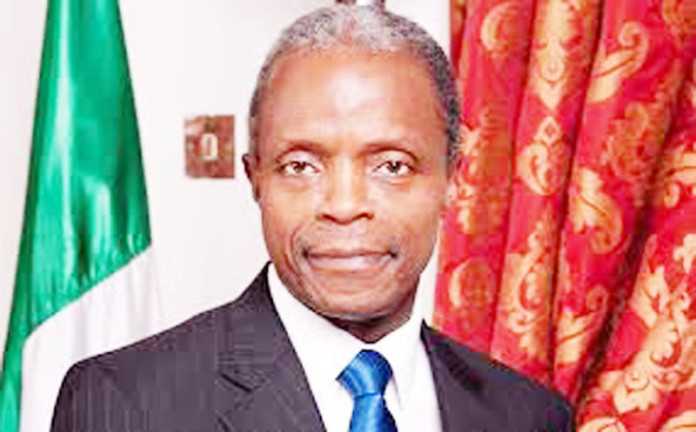After 19 months in office, debilitating economic recession that has lasted four consecutive quarters, double-digit inflation, and mass unemployment, the Muhammadu Buhari administration on Wednesday, April 5 unveiled the Nigeria Economic Recovery and Growth Plan (ERGP 2017-2020).
The plan seeks to restore the battered economy.
That it took the government almost two years to roll out an economic blueprint in the face of an economic downturn, the worst in two decades, speaks volume of lethargy in handling economic issues in particular and governance generally.
An economic plan is a fundamental policy initiative, a roadmap that shows where the government is headed. It is even more so in an economy plumbing the depths of despair, hemorrhaging because of wrong-headed policies.
To underscore the importance of the launch, it was attended by all ministers and top government functionaries, including All Progressives Congress (APC) National Chairman, John Odigie-Oyegun; Senate President, Bukola Saraki; House Speaker, Yakubu Dogara; and Zamfara State Governor, Abdulaziz Yari; who chairs the Nigeria Governors Forum (NGF).
Buhari disclosed that the three-year plan seeks to achieve a 7 per cent economic growth by 2020 by pulling the country out of recession, putting it on the path of strength and growth, away from import dependency.
He said the ERGP clearly sets out what his government is committed to doing by creating an environment for business to thrive.
But to achieve all these, he reiterated the need for Nigerians to produce “what we need.”
Buhari, who said his administration inherited numerous challenges – a reason many Nigerians believe he should have hit the ground running rather than crawling – repeated his campaign promises to fight against corruption, insecurity, and ensure inclusive economic growth.
“Security in the North East and other parts of Nigeria today is better than when we came in.
“Law enforcement agencies are prosecuting many cases of corruption and I assure all Nigerians that we are approaching our economic challenges in the same manner we are fighting insecurity and corruption,” he said.
The ERGP focusses on agriculture to ensure food security as well as energy, industrialisation, and social investment.
Budget and National Planning Minister, Udo Udoma, whose ministry coordinated the plan, re-emphasised that “the broad objectives of the ERGP are to restore growth, invest in our people and build a globally competitive economy.”
He disclosed that Buhari has approved the establishment of a unit in the Presidency to monitor the implementation.
But not many Nigerians are impressed with the economic posturing even with the unveiling of the plan.
One of them is the Emir of Kano, Lamido Sanusi, who insists Buhari’s economic model cannot work.
Sanusi, former Central Bank of Nigeria (CBN) governor, lamented at the Kaduna Investment Summit on the same day that “the federal government of Nigeria is spending 66 per cent of its revenues on interests on debts, which means only 34 per cent of revenues is available for capital and recurrent expenditures.
“That model cannot work. If you look at the 2017 budget of the federal government, I sometimes wonder what Nigerian economists are doing.
“In the 2017 budget presented by the federal government, the amount earmarked for debt servicing is in excess of the entire non-oil revenue of the federal government, but that is not the problem.
“The problem is that it is a budget that is even going for more debts.”
Sanusi decried the wrong-headedness of such a policy and admonished that “growth can only come from investments. It cannot come from consumption. It cannot come from government balance sheet. It cannot come from borrowing because you cannot borrow unsustainably.”
We strongly believe that Sanusi’s admonition is worth listening to.
Almost every knowledgeable economist in Nigeria and even international financial institutions like the International Monetary Fund (IMF) have in the past two years taken umbrage at the government’s policy options.
The fact that the economy has been in a free fall despite the catalogue of promises seems to bear such skeptics out. So, the ERGP should not be seen as the solution. The solution lies in the implementation of what is on paper.
Granted, it is coming 19 months late. But, to borrow a cliché, it is better late than never.
The plan should ensure the hard economic realities on the citizenry is cushioned, tackle waste and ensure social institutions as schools and hospitals are revamped.
It is intolerable that epidemics such as meningitis are still wreaking as much havoc as they are doing in the North.
For too long, the government has behaved as if the economy does not matter. Now is the time to change course before the ship of Nigeria is capsized by excess economic baggage.













